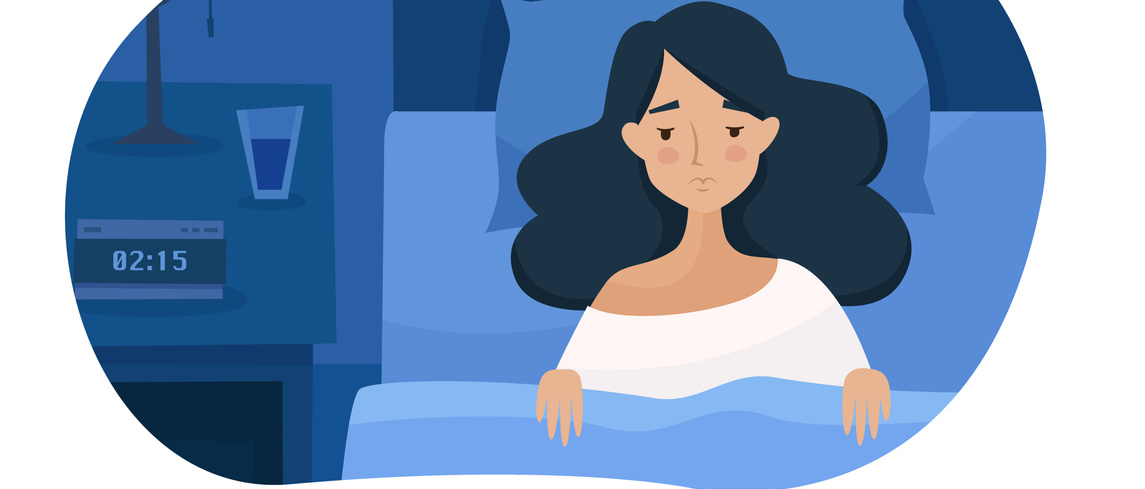
Poor sleep is a modifiable risk factor linked to depression, schizophrenia, and chronic physical diseases – and inflammation may be a mediating factor. APAAM 2021 also heard evidence suggesting that intervention to improve Morning Activity Disorder (MAD) may be a very sane idea.
“Difficulty getting going”, is how many of us describe not being a morning person. Morning Activation Deficit (MAD) is a more technical description. Whatever the terminology, the phenomenon is frequent in depression.1,2
"It has been thought that lack of early morning activation is a consequence of depression, but perhaps the reverse is true: depression could be a result of lack of morning activation. If so, encouraging morning activity through scheduling tasks may be a helpful therapeutic approach", suggested Stephen Smagula (University of Pittsburgh, USA).
Low morning activity may lead to depression by allowing more time for thinking about negative emotional content
A neurobiological basis in rumination
Evidence for the hypothesis comes from people who care for patients with dementia and are at risk of depression. Carers with mild-moderate symptoms were compared with those who had few or none.3,4
- Actigraphy data confirmed the association between morning inactivity and depression: carers with depressive symptoms were significantly less active than controls, but only during the period 8-10 am.3
- Morning inactivity predicted the persistence of depressive symptoms six months later. Carers with active mornings seemed to be protected against developing symptoms.3
- Support for a neurobiological basis came from functional MRI. “Non-morning”carers had greater resting-state connectivity between the amygdala (involved in fear and stress responses) and the ventral posterior cingulate cortex (involved in autobiographical memory) than morning-type carers.4 Greater amygdala-cingulate connectivity correlated with depressive symptoms.
"This pathway may be related to rumination", Professor Smagula speculated. Lack of morning physical activity could contribute to depression by allowing more time for thinking about negative emotional content.
"Intervention based on this hypothesis is feasible", he continued. In a pilot study in ten caregivers, therapist-led activity scheduling and monitoring for nine weeks led to a decrease in self-reported morning activity deficits.
In schizophrenia, the interface between disturbed sleep, inflammation and aging is a new target for intervention
Poor sleep a modifiable factor related to excess mortality
The fifteen-year (and growing) gap in life expectancy between people with and without schizophrenia arises largely from a greater susceptibility to chronic diseases of aging,5 Ellen Lee (University of California San Diego, USA) told the session on sleep and mental health.
Inflammatory processes have been implicated in this earlier onset of age-related pathology (or “inflammaging”) in people with schizophrenia. And poor sleep seems to contribute, she said. Sleep problems affect 30-80% of people with schizophrenia, precede the onset of symptoms, and are associated with worse quality of life and cognitive function.6
Baseline data on a longitudinal cohort of people with schizophrenia and controls cast light on these associations:6
Findings implicate poor sleep and inflammation in cognitive and metabolic dysfunction
- Compared with controls, people with schizophrenia slept longer and had poorer sleep quality
- In people with schizophrenia, poor sleep quality was associated with higher levels of the inflammatory markers C-reactive protein and interleukin-6
- High marker levels were associated with slower cognitive processing, even in the absence of insomnia
- Both poor sleep and raised CRP and IL-6 were more frequent in women than men
Preliminary data also suggest that obstructive sleep apnea is common among people with schizophrenia in the San Diego cohort. It was found in about 50% of subjects, but only a few had been formally diagnosed. Sleep apnea in the study was associated with inflammation and slower processing.
APAAM: American Psychiatric Association Annual Meeting
MAD: Morning Activity Disorder
MRI: Magnetic resonance imaging
IL-6: interleukine 6
CRP: C-reactive protein
HbA1c: Hemoglobin A1c
USA: United States of America
BE-NOTPR-0065, approval date 09/2021
